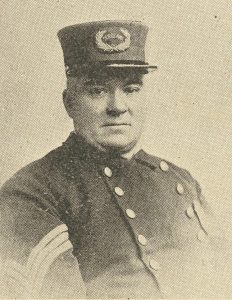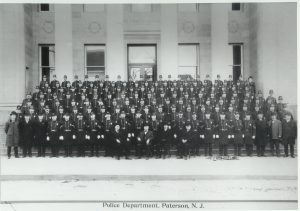New Jersey Civil Service Law Allows for Removal of Applicant from Hiring List for Negative Employment History, Appeals Court Says
New Jersey civil service law provides employees with an effective avenue for appealing adverse employment decisions to the New Jersey Civil Service Commission. However, in the case of Matter of Trejo, Police Officer and Union City, a New Jersey appeals court held that an employee may be removed from a civil service hiring list for a negative prior employee disciplinary history. This decision has significant implications for how employees should handle allegations of misconduct and resulting discipline.
decision has significant implications for how employees should handle allegations of misconduct and resulting discipline.
Background
Ana Trejo was a public safety telecommunicator with the Union City Police Department for ten years when she took the civil service examination for police officer. She passed and was placed on the eligible list. However, Union City removed Trejo from the list because of her history of civil service employee discipline during her ten year employment as a telecommunicator with the Police Department. Her disciplinary history included minor discipline for absenteeism; being reprimanded for sharing confidential law enforcement information; and imposition of major discipline for “inappropriate conduct.” The New Jersey Civil Service Commission gave notice to Trejo that she had been removed from the list for having an “unsatisfactory employment record.”
 New Jersey Lawyers Blog
New Jersey Lawyers Blog


 nepotism, politics, discrimination, whistleblower retaliation, cronyism, or outright bribery. Since the entire purpose of the New Jersey Civil Service System is to ensure that hiring is based on merit, there is an appeal process for applicants who believe that their name was improperly removed from a Civil Service hiring or promotion list.
nepotism, politics, discrimination, whistleblower retaliation, cronyism, or outright bribery. Since the entire purpose of the New Jersey Civil Service System is to ensure that hiring is based on merit, there is an appeal process for applicants who believe that their name was improperly removed from a Civil Service hiring or promotion list. These effects impact both
These effects impact both  New Jersey appellate decision in the case of
New Jersey appellate decision in the case of  the civil service system, do not enjoy.
the civil service system, do not enjoy. found to have abandoned her position she may be involuntarily terminated. Thus, the right to appeal these characterizations is important.
found to have abandoned her position she may be involuntarily terminated. Thus, the right to appeal these characterizations is important. protect the rights of applicants while ensuring that they are able to provide the vital public services of their prospective positions.
protect the rights of applicants while ensuring that they are able to provide the vital public services of their prospective positions. jurisdictions which have not adopted civil service do not enjoy. Most government employment decisions which do not involve
jurisdictions which have not adopted civil service do not enjoy. Most government employment decisions which do not involve 